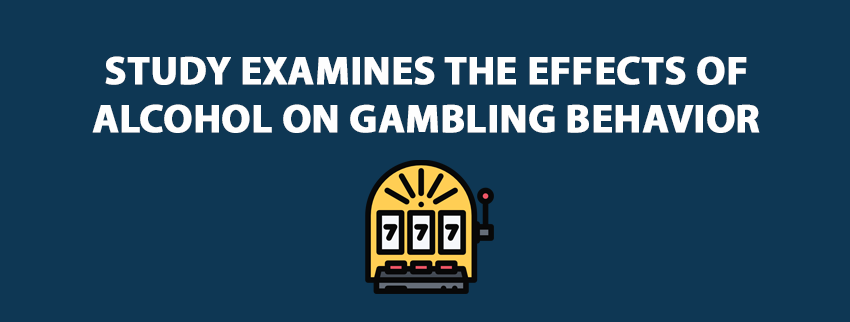Why do gamblers choose certain things or against other things when gambling? And which impulses ensure that the desire to gamble becomes perceptible in the human body. These and other questions have been investigated by the University of British Columbia’s Gambling Research Center for several years. In a current study, the scientists devoted themselves to a very special topic and examined the effects that alcohol may have on decisions about gambling. It is important to remember enjoying everything responsibly in life whether that is alcohol or something else. If you are a casino fan yourself and you prefer the comfort of your home there are plenty of online options available, and if you like to place bets you can check out NetBet.
Gambling Center analyzes facets of gambling
At the University of British Columbia, the so-called gambling research centre has been looking into the possible processes in the body when people take part in gambling for several years. Special attention is given to the area of impulses and causes that people tend to problematic gaming behaviour. The university recently devoted itself to a separate area in this sub-area: the interplay between alcohol and gambling. In general, the scientists concluded that gambling and alcohol consumption would support each other in a negative way. Those who drink alcohol tend to be much more ready for action after a loss than those who did not consume alcohol before the game.
The focus of the study was on the investigation of the influence of alcohol on the decisions recognized as “irrational”. These are unfounded predictions for the outcome of the next game round. The best way to describe this decision is with roulette. Here, many players assume, for example, that after a long red phase, there must be a black phase. In purely mathematical terms, this is not the case. It is not for nothing that roulette players say that the ball has no memories.
Roulette test brings surprising results
According to their statement, the researchers also carried out the so-called roulette test. The aim is to find out whether the alcohol reinforces the players’ false assumptions about the outcome of the next round. In other words: whether the players are more likely to be able to predict the outcome of the game round correctly. A total of 46 male subjects were divided into two groups for the test. One group received cocktails with vodka, the other group non-alcoholic cocktails. The scientists emphasized that the amount of vodka was so small that you couldn’t tell from the taste which group you belong to. The researchers also announced that the amount was nevertheless sufficient, given the bodyweight of the participants, to cause mild intoxication. Alcohol has already had an impact on the senses and decisions, even without a demonstrable taste.
The participants were then placed on a roulette game in front of the computer and should only bet on the colors red or black. The researchers expected that the drunken participants would assume that they would be able to correctly predict the outcome of the lap significantly more often. According to the study, this was not the case. Instead, a different picture would have emerged. The drunk participants would have reacted significantly more frustrated to possible losses and tried harder to compensate for them with increased stakes. The test group without alcohol remained true to its pattern of action even after a loss.
Education required among the population
The university had already carried out a similar study some time ago. Here, however, the researchers wanted to find out whether the players might consume more alcohol after losses in gambling than without participating in the game. In fact, it turned out that the players who had previously participated in games of chance consumed significantly more alcohol and significantly faster. In any case, in the eyes of the researchers, there is no doubt that alcohol consumption and gambling would support each other negatively. There are always studies on the behaviour of gamblers around gambling. For example, a recent study examined whether gambling addiction might be genetic. Likewise, a study has recently been carried out in Switzerland on the gambling behaviour of players on the domestic market.
As a conclusion of the study, the gambling centre advises reconsidering the sale of alcoholic beverages in gambling halls or casinos. It is standard throughout the world that players can consume alcohol directly at the gaming tables or machines in the casinos. According to the researchers, this should be reconsidered. Likewise, the population must be separately informed about the effects of alcohol consumption on gambling behaviour. Especially with a view to the digital gambling offers. After all, you can never check whether players are not drinking alcoholic beverages while playing in the online casino on the couch. Even in casinos and casinos, an alcohol ban is likely to be difficult to implement. In Germany, for example, the smoking ban a few years ago meant that numerous players stayed away from the establishments. In addition, the casinos make an enormous turnover every year from the sale of beverages.
